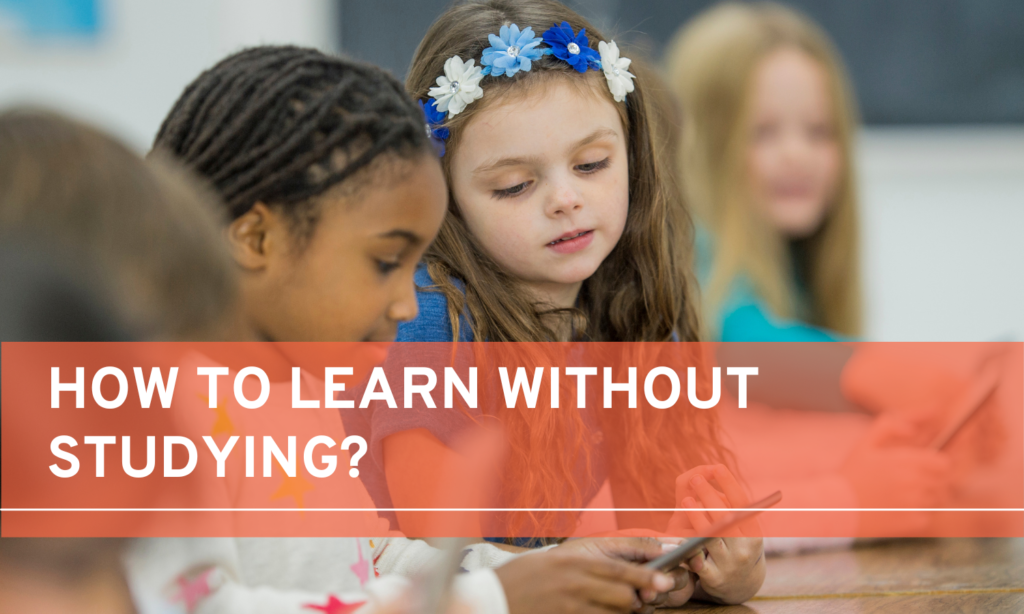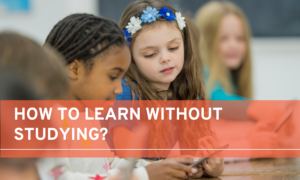Learning is a crucial part of life, but studying can be tedious and time-consuming. Fortunately, there are ways to learn without studying.
By understanding the concept of learning, practical techniques, and the role of habits and lifestyle, one can achieve their learning goals without spending countless hours studying.
To start with, understanding the concept of learning is essential. Learning is not just about memorizing information, but it is also about processing, understanding, and applying it.
By understanding the concept of learning, one can identify the most effective ways to acquire knowledge without studying.
Practical techniques for learning without studying are also crucial. These include testing oneself, attending classes, sitting in the front, and listening carefully to the teacher’s instructions.
By adopting these techniques, one can acquire knowledge without spending hours studying.
Moreover, the role of habits and lifestyle cannot be ignored. Good habits and a healthy lifestyle can significantly impact one’s ability to learn without studying.
Table of Contents
Key Takeaways – How to Learn Without Studying?
- Understanding the concept of learning is crucial for effective learning without studying.
- Adopting practical techniques such as testing oneself, attending classes, and listening carefully can help one learn without studying.
- Good habits and a healthy lifestyle can significantly impact one’s ability to learn without studying.
Understanding the Concept of Learning
Learning is the process of acquiring knowledge, skills, and attitudes through experience, study, or instruction.
It is a continuous process that occurs throughout life, and it is essential for personal and professional growth.
To learn effectively, one must understand the different types of learning, the importance of active engagement, and the role of curiosity.
Types of Learning
There are several types of learning, including:
- Cognitive learning: This type of learning involves the acquisition of knowledge, understanding, and thinking skills.
- Behavioral learning: This type of learning involves the acquisition of new behaviors through conditioning, reinforcement, and punishment.
- Social learning: This type of learning involves the acquisition of new behaviors through observation, imitation, and modeling.
Importance of Active Engagement
Active engagement is essential for effective learning. It involves actively participating in the learning process, rather than just passively receiving information.
Active engagement can take many forms, such as:
- Asking questions: Asking questions can help clarify concepts and deepen understanding.
- Participating in discussions: Participating in discussions can help to develop critical thinking skills and broaden perspectives.
- Practicing: Practicing new skills can help to reinforce learning and build confidence.
Role of Curiosity
Curiosity is an essential component of effective learning. It involves a desire to know or learn something new. Curiosity can be fostered by:
- Asking questions: Asking questions can help to satisfy curiosity and deepen understanding.
- Exploring: Exploring new ideas, concepts, and experiences can help to satisfy curiosity and stimulate further learning.
- Experimenting: Experimenting with new ideas, concepts, and experiences can help to satisfy curiosity and promote creativity.
Overall, understanding the concept of learning is essential for effective learning.
By understanding the different types of learning, the importance of active engagement, and the role of curiosity, learners can develop more effective learning strategies and achieve greater success in their personal and professional lives.
Practical Techniques for Learning Without Studying
Learning without studying is possible, and it can be an effective way to absorb new information. Here are some practical techniques that can help.
Learning Through Observation
Observing how things work and how people interact can be an effective way to learn without studying.
For example, if someone wants to learn how to cook, they can watch cooking shows, observe how their favorite chefs prepare dishes, and take note of the techniques they use.
Similarly, if someone wants to learn a new language, they can watch foreign films with subtitles or listen to podcasts in that language.
Applying Knowledge in Real Life
Another way to learn without studying is to apply knowledge in real life situations. For example, if someone wants to learn how to code, they can start by building a simple website or app.
If they want to learn a new skill, they can try it out in a real-world setting, such as volunteering or interning. This approach allows for hands-on learning and can make the learning process more engaging and enjoyable.
Using Visual Aids
Visual aids can be a powerful tool for learning without studying. For example, if someone wants to learn about history, they can use timelines, maps, and infographics to help visualize key events and concepts.
Similarly, if someone wants to learn a new concept, they can use diagrams, charts, and graphs to help them understand it better.
In conclusion, learning without studying is possible, and it can be an effective way to absorb new information.
By observing, applying knowledge in real life, and using visual aids, anyone can learn new skills and concepts without having to hit the books.
Role of Habits in Learning
Learning is not just about studying and memorizing information. It is about creating a learning environment and incorporating learning into daily routines.
Habits play a crucial role in learning, as they help individuals to learn and retain information over time.
Creating a Learning Environment
Creating a learning environment is essential for effective learning. The environment should be conducive to learning and free from distractions.
It should be quiet, comfortable, and well-lit. The following table summarizes some tips for creating a learning environment:
| Tips for Creating a Learning Environment |
|---|
| Choose a quiet and comfortable place to study |
| Minimize distractions, such as noise and technology |
| Ensure adequate lighting |
| Keep the study area organized |
| Surround yourself with learning materials, such as books and notes |
Incorporating Learning into Daily Routine
Incorporating learning into daily routine is an effective way to develop good learning habits. It helps individuals to make learning a part of their daily lives. The following bullet points summarize some ways to incorporate learning into daily routine:
- Set aside a specific time for learning each day
- Use downtime, such as waiting in line or commuting, to review notes or listen to educational podcasts
- Make a to-do list of learning tasks and prioritize them
- Reward yourself after completing a learning task
- Practice active learning, such as summarizing and explaining concepts to others
In conclusion, habits play a crucial role in learning. By creating a conducive learning environment and incorporating learning into daily routine, individuals can develop good learning habits that will help them to learn and retain information over time.
Impact of Lifestyle on Learning
Learning is a complex process that involves the integration of various factors. One of the most important factors that affect learning is lifestyle.
A healthy lifestyle can significantly improve learning outcomes, while an unhealthy lifestyle can have a negative impact.
In this section, we will explore the importance of healthy eating, the role of physical activity, and the significance of adequate sleep in learning.
Importance of Healthy Eating
A healthy diet is essential for optimal brain function and cognitive performance. A diet rich in fruits, vegetables, whole grains, and lean protein can provide the necessary nutrients for the brain to function at its best.
On the other hand, a diet high in saturated fats, sugar, and processed foods can impair cognitive function and lead to poor academic performance.
To ensure a healthy diet, it is important to make smart food choices. This includes eating a variety of foods from all food groups, limiting the intake of processed and sugary foods, and staying hydrated by drinking plenty of water.
Role of Physical Activity
Physical activity is not only important for physical health but also for cognitive function. Regular exercise can improve memory, attention, and concentration. It can also reduce stress and anxiety, which can interfere with learning.
To incorporate physical activity into daily life, it is recommended to engage in at least 30 minutes of moderate-intensity exercise most days of the week. This can include activities such as walking, running, cycling, swimming, or dancing.
Significance of Adequate Sleep
Sleep is crucial for learning and memory consolidation. During sleep, the brain processes and consolidates information learned during the day. Lack of sleep can impair cognitive function, attention, and memory, which can negatively impact academic performance.
To ensure adequate sleep, it is recommended to establish a regular sleep schedule, avoid caffeine and alcohol before bedtime, and create a sleep-conducive environment by keeping the bedroom dark, cool, and quiet.
In conclusion, a healthy lifestyle can significantly improve learning outcomes. By incorporating healthy eating habits, regular physical activity, and adequate sleep into daily life, individuals can optimize their cognitive function and achieve their full learning potential.
Assessing Progress
Assessing progress is a crucial part of learning without studying. It allows learners to identify their strengths and weaknesses and adjust their learning strategies accordingly. There are two main ways to assess progress: self-evaluation and receiving feedback.
Self-Evaluation
Self-evaluation is a powerful tool for assessing progress. It involves reflecting on one’s learning and identifying areas of improvement. Here are some tips for effective self-evaluation:
- Set goals: Setting clear goals can help learners focus their efforts and measure their progress.
- Keep a learning journal: A learning journal can help learners track their progress, reflect on their learning, and identify areas for improvement.
- Use rubrics: Rubrics can help learners evaluate their work against specific criteria and identify areas for improvement.
- Take quizzes and tests: Quizzes and tests can help learners assess their understanding of the material and identify areas where they need to improve.
Receiving Feedback
Receiving feedback from others is another important way to assess progress. It allows learners to get an outside perspective on their learning and identify areas for improvement. Here are some tips for receiving feedback:
- Seek feedback from multiple sources: Getting feedback from multiple sources can help learners get a more comprehensive view of their progress.
- Ask specific questions: Asking specific questions can help learners get targeted feedback on areas where they need to improve.
- Listen actively: Active listening involves paying attention to what the other person is saying and asking clarifying questions if necessary.
- Use feedback to improve: Once learners receive feedback, they should use it to identify areas for improvement and adjust their learning strategies accordingly.
In conclusion, assessing progress is a crucial part of learning without studying. Self-evaluation and receiving feedback are two powerful tools for assessing progress and identifying areas for improvement. By using these tools effectively, learners can make steady progress towards their learning goals.

Conclusion
Learning without studying is possible, but it requires effort and dedication. By adopting the right mindset and using effective learning strategies, anyone can improve their ability to learn.
One of the most important things to keep in mind is that learning is a learned behavior. This means that anyone can improve their ability to learn by practicing and using effective strategies.
Some of the most effective strategies include self-testing, spaced repetition, and active recall.
Self-testing involves testing your memory on a regular basis. This can be done by using flashcards, quizzes, or other techniques. Spaced repetition involves reviewing material at increasing intervals over time.
This helps to reinforce the material in your memory and improve retention. Active recall involves actively retrieving information from your memory, rather than simply reviewing it passively.
Another important factor to consider is the importance of motivation. Learning is much easier when you are motivated and interested in the material.
Finding ways to make the material interesting and relevant to your life can help to increase motivation and improve learning outcomes.
Overall, learning without studying is possible, but it requires effort and dedication.
By adopting the right mindset and using effective learning strategies, anyone can improve their ability to learn and achieve their goals.
